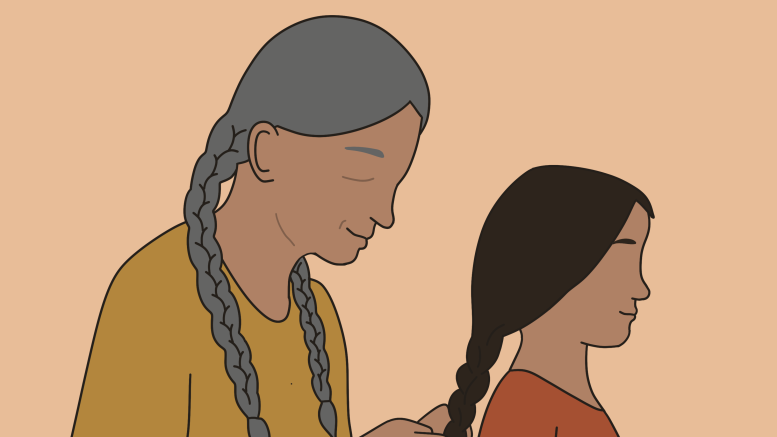Frank Deer is a professor of Indigenous education at the U of M’s faculty of education.
“I am a schoolteacher by trade,” he said. “I taught elementary school in the far north of Manitoba as well as the inner city of Winnipeg.”
His research began during his PhD in educational administration at the University of Saskatchewan, where he studied citizenship education for Indigenous students.
“At the time, citizenship education became really important,” he said. “I immediately began wondering about the manner through which citizenship education may be understood as something that might be important to Indigenous peoples.”
Over time, his research broadened from social studies education to investigating how Indigenous knowledge is utilized across various disciplines.
The level of integration of Indigenous perspectives into academic disciplines varies, with subjects like language, literacy, history and social studies more easily incorporating such knowledge. More so, Deer acknowledged the ongoing debate about the applications of Indigenous perspectives in fields such as chemistry, physics and music.
Deer’s research explores how primary and secondary schools, school districts and provincial authorities incorporate Indigenous perspectives, emphasizing meaningful engagement for children and youth with First Nations, Inuit and Métis histories.
In 2024, Deer completed a Canada Research Chair as a faculty member, focusing on Indigenous language education, a developing field that schools are increasingly interested in.
“If one pays attention to the hopes and dreams of Indigenous peoples and communities, certainly across Canada […] there are concerns about where our languages are and are they in danger of disappearing?” he said. “Is there something we can do at the community level and at the school level to be doing that?”
Deer examined the administrative dimensions of supporting Indigenous language education.
In addition to language preservation, Deer’s recent research has explored the role of spirituality and religious orientations in Indigenous education.
“[When] schools invite Indigenous communities into their classroom communities, the religious and spiritual orientations of Indigenous peoples don’t just inform those exercises, but they actually become quite essential components of it,” he said.
“How often have we borne witness to ceremony occurring in and around schools? How often do we hear about the importance of spiritual orientations, when people want to know what’s worthwhile exploring for educators and students about Indigenous peoples and communities?”
Language preservation, Deer explained, is a growing issue that will hold increasing relevance over time.
He stressed the importance of exploring the rationale behind inviting Indigenous Elders and knowledge keepers into school and university communities.
Deer emphasized the interdisciplinary nature of Indigenous language education, highlighting collaboration between the faculty of education and the department of Indigenous studies in the faculty of arts. The faculty of arts recently hired a department head with expertise in Indigenous language issues and is developing programming for Anishinaabemowin (Ojibwe) and Cree languages.
The faculty of education at U of M offers a post-degree program, where students complete an arts or science degree before pursuing a two-year education degree. This creates an opportunity to strengthen Indigenous language education, as students with language skills can train as teachers and return to their communities, where such programs are in high demand.
However, the shortage of fluent speakers remains a significant challenge.
“We’re still at a point where there are precious few fluent speakers to support some of the things that the faculty of arts is trying to achieve and what we’re trying to achieve.”
Addressing this requires long-term collaboration between the university and the province to increase the number of fluent Indigenous language educators, a process that will take years of commitment.
“We have to have what some people refer to as a seven generations approach,” he said. “The actions that we initiate now ought to be understood as not just having benefit for me or my children, but seven generations in the future.”
Deer continued, “I would simply encourage the university community to devote some time and some effort and maybe even some emotional energy to the notion of what Indigenous engagement means to us as a university community.”
Deer expressed his appreciation for the U of M higher administration supporting Indigenous engagement by facilitating the hiring of Indigenous faculty and enhancing efforts to recruit Indigenous students.
“We can’t explore Indigenous engagement or university without having people at the table who will help us to have that journey,” he said. “Nothing about us, without us.”



